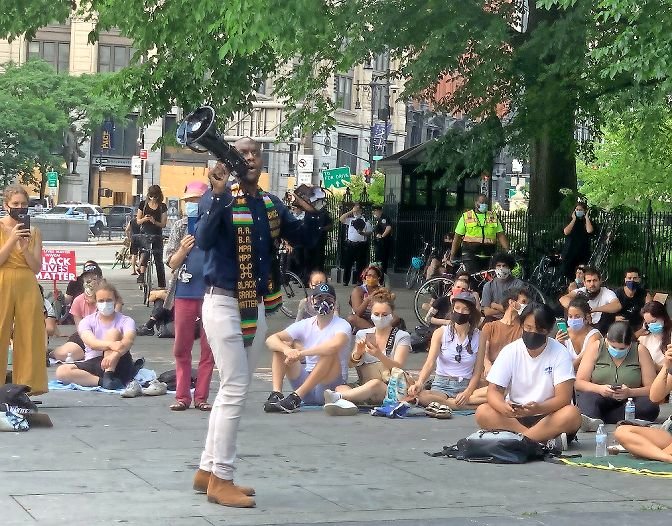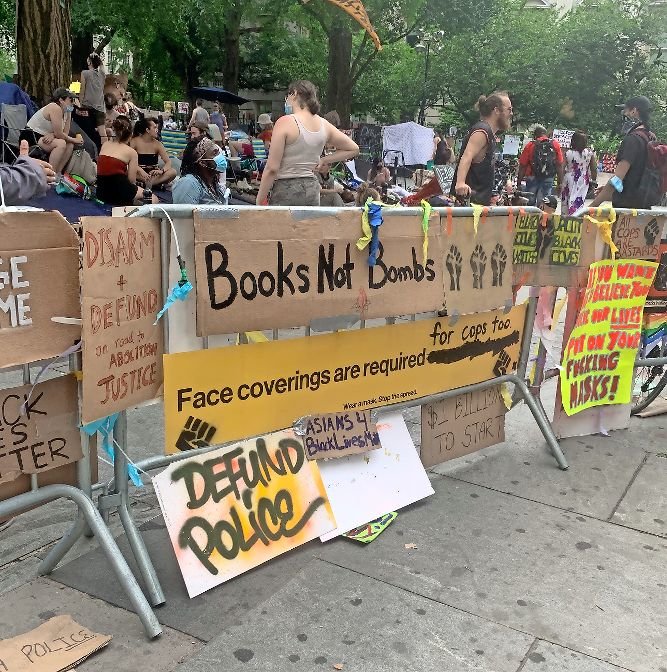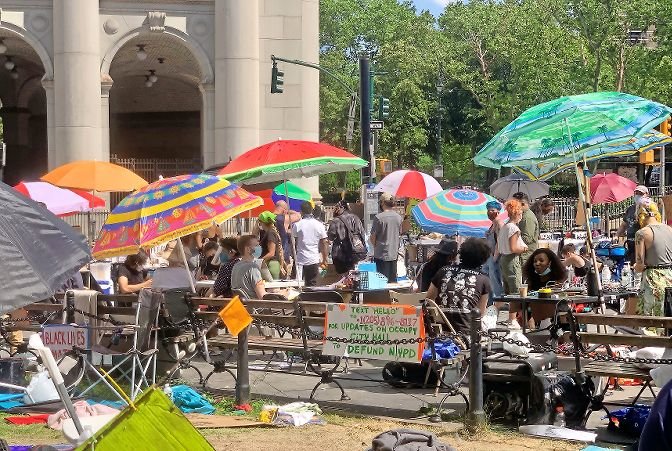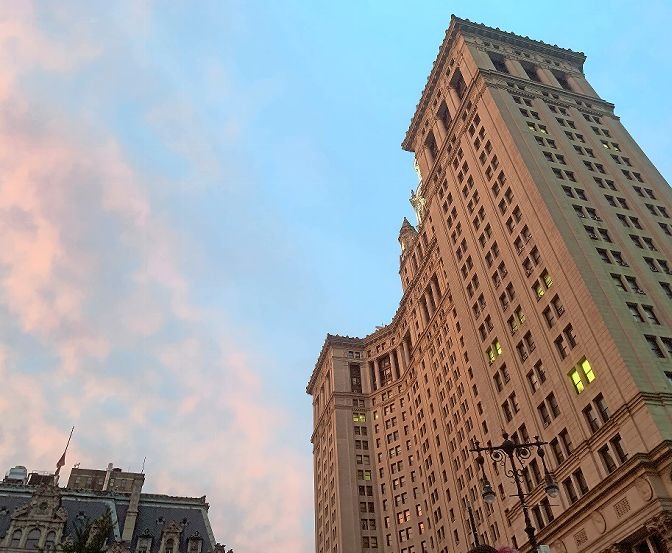Budget deal struck, but $1B less for NYPD
As coronavirus continues to plague businesses, city council and mayor will be forced to use more of their red pens
In the 12 days leading up to July 1, when the new budget fiscal year was slated to begin in New York City, a crowd of protesters occupied City Hall Park on Centre Street in Manhattan in an effort to pressure the city council and Mayor Bill de Blasio to defund the New York Police Department.
The crowd, which swelled each day to more than 1,000 at various points, demanded city government cut at least $1 billion from the police budget, and reinvest that money into social programs, education, and improvements to public housing.
It’s all part of the nationwide protests and demonstrations centered around police brutality as well as some radical efforts in other cities, like Minneapolis, whose city council voted unanimously June 26 to abolish its police department and explore new public safety methods.
In New York, activists have zeroed in on the city’s budget negotiations, already rocked with massive shortfalls as a result of the coronavirus pandemic.
The economic impact of the public health crisis has forced de Blasio to completely rethink his proposed executive budget from January, which anticipated revenue of roughly $96 billion. In May, however, the mayor had to rethink that budget, working instead with about $87 billion — leading to the need for drastic cuts to nearly every city department.
But activists from VOCAL-NY — the group that organized the Occupy City Hall protests — say there is no reason for the city to cut funding from education or parks, when the city has spent all of June near the center of a national moment wherein Americans are seriously rethinking the role of police in daily life.
When the occupation of City Hall first began, demonstrators demanded the city cut $1 billion from the NYPD’s proposed $5.64 billion budget. But by June 28, those demands grew to $3 billion in law enforcement cuts.
After resisting those for weeks, de Blasio announced Monday he and council Speaker Corey Johnson, had finally agreed on a budget outline. That included the $1 billion in cuts the folks outside de Blasio’s office window originally were asking for.
“I am excited to say that we have a plan that can achieve real reform, that can achieve real redistribution, and at the same time ensure that we keep our city safe,” de Blasio said at a press briefing that same day. “My office presented a plan that would achieve a billion dollars in savings for the NYPD and shift resources to young people, to communities in a way that would help address a lot of the underlying issues that we know are the cause of so many problems in our society.”
The city council didn’t officially weigh in until nearly 11 p.m., on Monday, while more than 1,000 protesters occupied the park outside the council’s chambers, as well as on Centre and Chambers streets.
“This was a particularly difficult budget process in terms of scheduling,” Councilman Andrew Cohen told The Riverdale Press on Monday night. “Conceptually, it’s all there. It’s just a matter of the documents that have to be created and go online at this point.”
While nearly every department will experience cuts this year as a result of the revenue crisis, Cohen said the NYPD would lose a billion from its expense budget, while an additional $300 million in capital funds will be deferred.
But there is an important distinction between expense cuts and capital deferments, Cohen said, as the expense budget refers to the various responsibilities the council plans to remove from police jurisdiction.
The cuts to the capital budget, for example, will impede some of the department’s ongoing projects, including plans to build a new precinct in southeast Queens as well as a proposed new facility for the NYPD’s property clerk. But those plans are simply on hold, not stopped forever.
“Both of these projects will happen,” Cohen said. “But they are deferred.”
In the meantime, Cohen said those funds will be redirected toward improving New York City Housing Authority properties and services throughout the city, and build three community centers. Regarding expenses, most of the NYPD’s expense budget funds salaries, many of which will be reallocated in the form of chipping away at the NYPD’s list of responsibilities.
These will include more than 5,000 police officers currently working in schools. Yet activists like Hawk Newsome of Black Lives Matter of Greater New York worry the city council’s plan simply reallocates those officers under the city’s education department’s jurisdiction. At an assembly in City Hall Park on June 27, Newsome said he was concerned city officials are simply transferring police spending from one department to another.
Cohen disagreed, saying he believed putting school safety back in the hands of the education department was a major effort by the city council to break the school-to-prison problem, which critics say disproportionately sends young people of color into the criminal justice system.
For Cohen, defunding the NYPD is about slowly removing responsibilities from the department. But activists claim that approach is little more than an accounting trick that keeps police officers in positions of power while doing nothing more than changing the department title on their pay stubs.
“It’s a substantive change, and anyone who says differently is simply not being honest,” Cohen said. “There’s a big difference between having a discipline situation with someone from the NYPD and someone from the DOE.
“We need school safety agents, but they don’t need to be under the jurisdiction of the NYPD.”
EDITOR’S NOTE: Anthony Capote is a professor working in the CUNY system, which — like many elements across the five boroughs — is impacted by the city budget.













